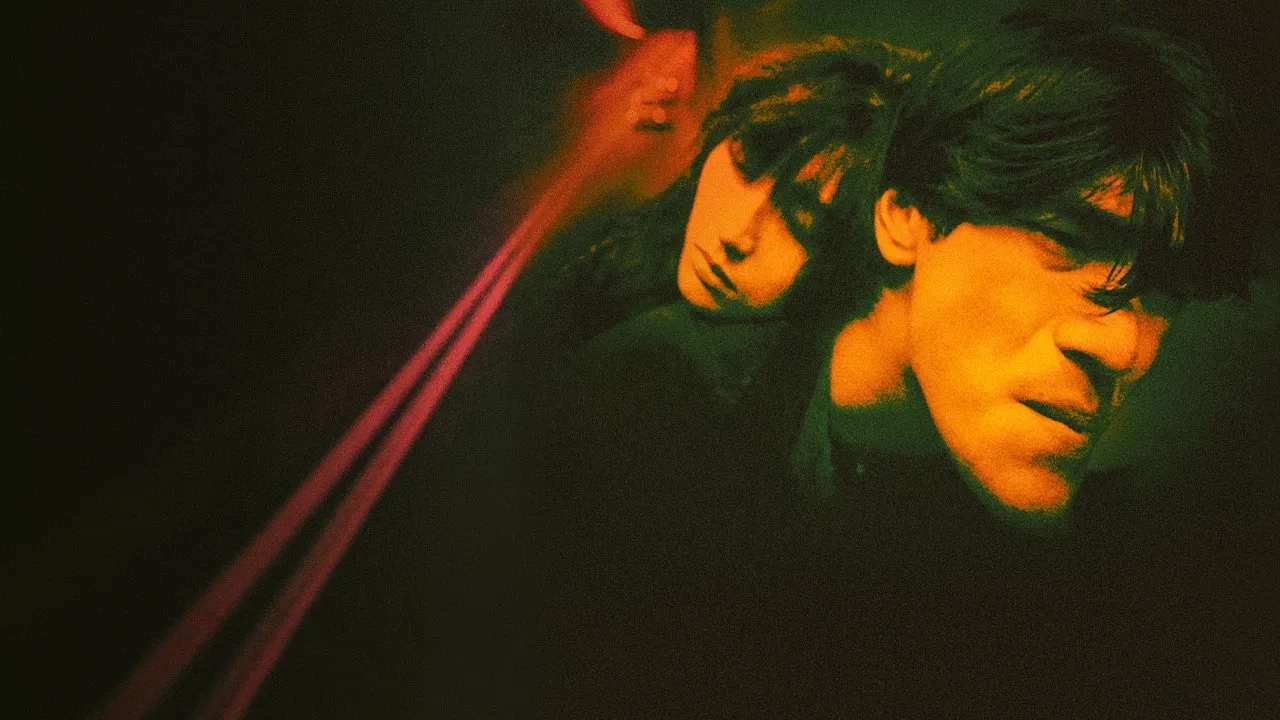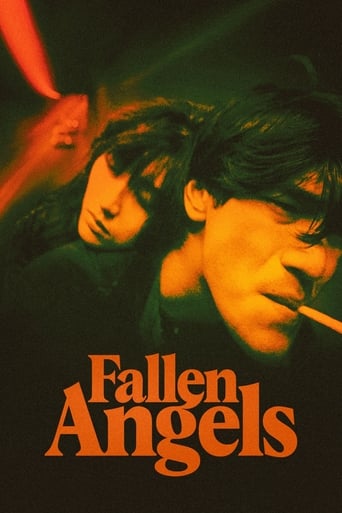

It's fun, it's light, [but] it has a hard time when its tries to get heavy.
... View MoreThis is a small, humorous movie in some ways, but it has a huge heart. What a nice experience.
... View MoreIt’s fine. It's literally the definition of a fine movie. You’ve seen it before, you know every beat and outcome before the characters even do. Only question is how much escapism you’re looking for.
... View MoreEasily the biggest piece of Right wing non sense propaganda I ever saw.
... View MoreStrapping neon lights in the dark underbelly of Hong Kong sets the stage for this uber-hip tale of isolationist tragedy of love-shorn, fallen heroes as they try to make their way amongst the cold heartless throngs of civilization. Where connections of life are hostile, our players literally create from scratch a method to link a distant humanity to their otherwise meaningless lives. The result is pure visual bliss. To not be pleasurably mesmerized by this flick is a treason best left without a conviction. The story is a haphazard scramble of lost souls loosely linked by a cinematic art form best left undefined. The direction is just as indescribably perfect, like putting into words the puissance of Mona Lisa's hinting smile. The camera man must have enjoyed a cocktail of methamphetamines washed down with steroids, the result being a wonderfully frenzied complex of voyeuristic energies and incongruous situations whose symbolic import are indelibly brought together in this flick's perfect ending. The only problem was that, as in all of life, the good times all must come to a painful end, a lustful need for more conjugated to an emptiness that life verite' seems unwilling to fulfill. Genruk of Evil Eye Reviews
... View MoreFallen Angels is an exhilarating rush of a film, with all manner of go-for-broke visual bravura that expresses the free spirits of bold young people. A disillusioned hit-man and a former convict look for love amidst the frenetic street life of Hong Kong.The film is a speedy, adrenalin-filled journey though neon-drenched Hong Kong, and encounters with its beautiful people. Its style trumps its story and fittingly, first impressions count for everything. Fallen Angels can be seen as a companion piece to Chungking Express (1994). On January 21, 1998, the film began a limited North American theatrical run through Kino International, grossing US $13,804 in its opening weekend in one American theatre. The final North American theatrical gross was US $163,145.
... View MoreI have seen several of the directors other films and I must admit I find them beyond boring. This film stands out as his almost singular watchable movie as it contains action and the best shots in a film set in the real world-aka-not SF- I have ever seen. The images are truly excellent, gritty, realistic, and beautiful in a strange kind of way. The story leaves much to be desired in terms of the bombastic acting style in many places, real hyper stuff that will grate on the nerves, like a lousy martial arts movie made on a budget of 20 bucks. I think this film is worth seeing just for the visuals-you know what they say- a picture is worth a thousand words, well, in this case, I would say a picture is worth a million words. I have enjoyed many other films that are Asian Cinema, I just think the directors other films are plain bad.
... View More**Very Little Spoilers** Knowing that Shirley Kwan's 'Forget Me', which I absolutely love, is in the soundtrack of this movie with an interesting title like 'Fallen Angels', I kind of expected this to be quite a masterpiece, especially with the good reviews I read in both Amazon and IMDb but alas, it's one of those over-rated movies again.I wasted S$20 of my money on this DVD since I can't rent it anywhere, and the Code 1 DVD cost S$63, almost a robbery.I like seeing Leon Lai, who plays a hired assassin, at the start even when he starts shooting at people with no purpose as who hired him and why. Then there's Michelle Reis, with fringes so long I can hardly see her face at all, no thanks to the shaky camera, which is very irritating.Just when some bits may get interesting like the guy massages the dead pig, the camera switch to a new scene and there's literally no story.It has a feeling that it's trying to be a cool movie but there's no story and character development and I don't care about all the people in it but I'm just waiting for the movie to end since I've already paid for this DVD.Rated 4/10 due to: one of my favorite song in the soundtrack- Forget Me Both Leon Lai and Michelle Reis are among my favorite stars. I was anxious to see them both together again after watching the TV series 'The Legendary Rangers'.But even with this 2 gorgeous actors, the film is wasted because it has not made full use of the enormous potential from the main title and only worth one viewing for the factors mentioned above. It could have been made like Leon The Professional but it's just a piece of crap. Rent it if you must, but not to buy at all. I regret buying the DVD.
... View More